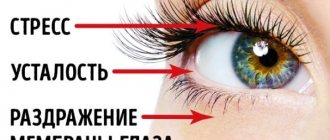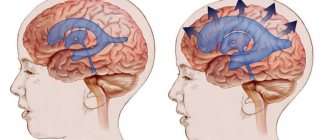Psychological disorders such as neuroses are often found in children. The largest number of cases of disorders is recorded in the age group that includes schoolchildren and adolescents.
Neurasthenia manifests itself in irritable weakness. The child may have a tendency to react with anger or irritation, as well as instability in the face of various mental stresses. Neurotic disorders are often accompanied by autonomic disorders. Vascular fainting, appetite and sleep disturbances, frequent vomiting and headaches may occur.
Factors that can increase the risk of neurotic disorders are:
- excessive loads. Physical activities can also cause neurosis, but first of all you need to beware of intellectual overload. Classes in specialized schools with various specializations, visiting various clubs and sections after school - all this can provoke the appearance of asthenic neurosis in a child;
- unfavorable family environment, quarrels and divorce of parents;
- mistakes of parents in the educational approach. Excessive demands, the presence of unnecessary and strict restrictions.
Teenagers are most susceptible to the development of neuroses. This is due to the characteristics of this age period. Difficult relationships with peers at school and acute conflict situations can have a negative impact on the fragile psyche of a child.
Classification of neurotic disorders in children
Symptoms of childhood neuroses
The manifestations of childhood neuroses are quite diverse, including various tics (the child may twitch the eyelids of the eyes, similar to blinking, but quite frequent); obsessive actions with any parts of the body, and these actions, as a rule, become more frequent when the situation is uncomfortable for the child; speech disorders in the form of logoneurosis; nighttime, and often daytime incontinence of urine (enuresis) or feces (encopresis); manifestations of childhood neuroses can be in the form of obsessive biting of lips until blood bleeds, or when a child bites his nails. Often childhood neuroses can be accompanied by severe emotional agitation, with sobbing and attempts at self-harm. The most common symptoms of neuroses in children include:
- anxiety,
- fears,
- various tics,
- insomnia.
Treatment of childhood neuroses
As a rule, childhood neuroses are reversible, and the sooner parents notice that their child has some kind of psychological problems and contact a specialist with the child, the faster the recovery will be and the easier the treatment. However, if you do not notice for a long time that the child has problems, or do not pay attention to it, then childhood neurosis, like any other disorder, can become chronic, and any complications may also arise. And, accordingly, the treatment of such a disorder will be longer and more labor-intensive, which will affect the child’s socio-psychological adaptive functions. Treatment of childhood neuroses is usually carried out on an outpatient basis; for these disorders, complex therapy is necessary: this includes drug therapy and psychotherapy, and the emphasis in the treatment of childhood neuroses is on psychotherapy, i.e. sessions with a psychologist. But, in any case, the diagnosis of childhood neuroses and recommendations for treatment should be carried out by a pediatric psychiatrist or psychoneurologist.
Warning
The ability to critically evaluate what is happening, make firm decisions and overcome difficulties is of great importance in the prevention of childhood neuroses.
A child is like a cultivated house plant that requires constant care.
It needs to be watered (be interested in the child’s life and feelings), fertilized (supported) and nourished (meet his needs).
Parents, in order to minimize the likelihood of neurosis in children, should not be offended by them for natural manifestations (crises that accompany growing up), because raising a person with their own individual characteristics, independent of parental pressure, is work worthy of respect.
It cannot only bring joy, but also experiences and the whole possible range of feelings that accompany child-parent relationships.
Thus, I want to support parents in their difficult but worthy career, because “what doesn’t kill us makes us stronger.” Childhood neurosis is treatable and preventable.
Sounds a little pretentious, doesn't it? Yes, but we are dealing with children and their childhood neuroses, which torment them and us.
Treatment and prevention of neurotic disorders in children
Correction of such mental conditions as neurotic disorders in children is carried out comprehensively. In this case, consultation with various specialists is necessary. Only with the joint work of a pediatrician, neurologist, psychologist and psychiatrist is successful treatment of the disorder possible.
The participation of parents is of great importance in normalizing the mental state of the child. They should notice changes in the child’s behavior and immediately contact specialists. It is important to understand that ignoring such a dangerous disease as neurasthenic disorder can lead to even more serious conditions. Therefore, it is important to start treatment as early as possible. The Psychoendocrinology Center employs experienced specialists who apply the latest achievements in the field of psychiatry and psychology in their practice.
During the treatment process, much attention is paid to psychotherapeutic measures. Family psychologists at the Center work not only with young patients, but also with their parents and other family members. Medicines can also be used to correct neurotic disorders in children. They are prescribed in extreme cases, when taking medications is justified by the patient's condition.
Neurosis is a dangerous and insidious disease; a lot of effort must be made to completely cure it. It is much easier to prevent the appearance of neuroses. The risk group includes impressionable children who are prone to various kinds of anxiety and fears. Parents should pay attention to the child and his needs, and if the first signs of neurotic disorders appear, contact the specialists of the Psychoendocrinological Center. All patients are guaranteed complete confidentiality!
Neuroses in children
All parents have heard about neuroses. Many parents do not know what neurosis is. There is a widespread and firmly established opinion that if a child is “nervous”, he is whiny, excitable, irritable, if he is not like other children, behaves incorrectly, is too restless, difficult, if he has disturbed sleep or poor sleep. appetite means he has a neurosis.
Neurosis is a special form of mental defense that helps protect oneself from traumatic reality. Its development is necessarily preceded by some kind of internal conflict. The cause of such a conflict may be:
- suppression of the child’s innate nature (the soft, “feminine” boy is scolded by his father, who wants to see a “real man” in his son);
- psychophysical defect (the child feels that he does not meet the requirements, he seems worse than others, even if this is not so);
- discrepancy between the conscious assessment of oneself at a given specific moment and the subconscious self-assessment embedded in the psyche on the basis of personal experience and assessment of the individual by others.
The condition preceding neurosis, which is much more common, is called pre-neurosis.
Signs of the possibility of developing neurosis or what parents should pay attention to:
- Pre-neurosis is characterized by self-centeredness, and a child with pre-neurosis is, above all, overly selfish. He is unbearably demanding, he doesn’t want to know that his parents are tired, that his grandmother’s heart hurts, and his grandfather’s head hurts. He is stubborn and capricious.
- At the same time, such a child experiences fear of strangers, including peers, feeling his inadequacy, because the second, main feature of pre-neurosis is a feeling of insecurity.
- Hence, his most characteristic side is the contrast of behavior. A child with pre-neurosis is truly unpredictable. A feeling of inadequacy takes over - and he retreats, gives in to everyone, is painfully indecisive, fearful, refuses what he wants. A sense of dignity takes over - and he rushes headlong into a fight, into a violent conflict, demanding, persistent. He either gives in to the weak, or rushes at the obviously stronger one. He is either shamefully cowardly or desperately daring and daring.
These are signs not of neurosis itself, but of pre-neurosis, a condition that can last for years, and it is possible that for a lifetime. Neurosis as such may never develop, but it may appear after a physical or mental shock of sufficient strength, moreover, relevant specifically for this particular child. It’s like a ticking time bomb, because this condition undoubtedly requires the attention and intervention of parents and specialists.
When moving towards neurosis, a child with pre-neurosis suffers painfully from self-doubt, but he hesitates. Experiencing internal conflict. If something happens that upsets this precarious balance - a crushing failure, severe humiliation, sensitive defeat, i.e. acute mental trauma - the child is shocked, he has completely and irrevocably lost faith in himself, and has definitely capitulated. The hesitation is over, the painful internal conflict is no more. But this is not neurosis yet. If he, having capitulated, gave up his self-esteem, this is a sign that he is broken. If he capitulated, but at the same time retained a sense of dignity, then he has a neurosis. But how to maintain a sense of dignity when surrendering?
Psychological protection helps to preserve it in such cases.
Psychological defense, we repeat, is an unconscious self-deception, such an attitude towards oneself, towards others and towards life, in which the person unconsciously resorting to it is sincerely convinced that he is good, always and in everything, and those around him are always bad, that it is not he who is weak, but life is unfair to him. As a result, the sense of dignity is protected and the feeling of inadequacy disappears. But at the same time, you also need to somehow adapt to life! Psychological protection for neurasthenia solves this problem very simply.
Since neurosis, as mentioned above, is, in fact, a special form of psychological defense, it has certain individual characteristics in each specific case, depending on the individual characteristics of the psyche.
It is generally accepted to distinguish three main forms of neurosis.
- Neurasthenia
Such forms more often develop in “feminine” children, especially boys attached to the family (“genophilic”, from “genos” - genus and “phil” - to love). A child with neurasthenia presents to his parents “neurotic asthenia” - mortal fatigue, poor health.
He demands nothing, and nothing is demanded of him. Moreover, everyone, even children, protects him. They begin to give in to him in everything. He is not given responsibility, which is what he most desires. He is not criticized, not accused, and this suits him quite well. It is obvious that he “settled in quite well.” Parents and teachers see: he really requires a special approach, bribes are easy from him. And they are undemanding to him - he would be alive.
He capitulated, and everyone recognized the legitimacy of the capitulation. He capitulated and at the same time retained a sense of dignity, because he says to himself: “If I were healthy, I would be a superman!” This is neurosis, in this case neurasthenia.
- Obsessive-compulsive disorder
Pre-neurosis, which has its own specific characteristics, leads to obsessive-compulsive neurosis: extreme egocentricity - fixation only on oneself, on one’s safety, on one’s well-being, on one’s problems while ignoring the interests and problems of all other people; extreme anxiety and suspiciousness, again, regarding oneself and one’s health and well-being. Phobias are very common – fear of something or someone.
In these phobias, everything is conscious: the source of danger and protection from danger, when a child will not enter the elevator alone at the entrance, or better yet, even if he is with his mother, he will climb the stairs, because even the mother will not help if the elevator gets damaged. Such a child avoids crowds, walks a kilometer away from deserted places, dogs, etc. In short, phobias are a persistent, conscious fear of death or an accident, and they are very characteristic of this pre-neurosis. Children with pre-neurosis, leading to obsessive-compulsive neurosis, refuse food that is questionable in terms of a threat to health, are extremely anxious about their health, and at a doctor’s appointment, interrupting their mother, they themselves express their complaints, because they fear that the mother may miss something, neglect something important. These are children counting their pulse, setting their own thermometer.
Safety and well-being for such a child are closely related to the well-being of the parents. He is painfully unsure of himself and hopes only for them. Illness or any other threat to oneself or parents, anything that threatens well-being and safety is an acute psychological trauma for such a child.
The hesitation ends. From now on, everything is decided in favor of safety. A life-saving psychological “overprotection” comes. The child is protected from fear of life and from fear of death by symbolic rituals. And this is a true obsessive-compulsive neurosis.
Protecting themselves from anxiety and fear, children suffering from obsessive-compulsive neurosis do what simply anxious children often resort to, knocking on wood three times or spitting over their left shoulder three times.
But this is not enough for a neurotic. The neurotic tendency in this form of neurosis is to achieve over-security. “So that nothing happens,” children suffering from obsessive-compulsive neurosis wave their arms in a special way, stomp while walking, walk a few steps, make a full turn, as if following the command “circle,” and only after that move on. They constantly squat, or walk around dark spots on the road, or climb the stairs, stepping, for example, only two steps. Sometimes such children ritually walk only in zigzags. They do not board a vehicle with an unacceptable number, just as many healthy people avoid the number 13; They touch in order to protect themselves all or some specific objects, for example, mother’s clothes or the door frame.
Rituals and obsessive actions calm them down. This is how they protect themselves from fears, which are based on the fear of death, misfortune, and trouble. But how can you protect your dignity in all this? And the inner voice sounds: “I am not cowardly, I am careful!” And since he is careful, it means he is reasonable, and his sense of dignity is preserved. Psychological defense in this case also took the form of neurosis - obsessive-compulsive neurosis.
- Hysterical neurosis
Pre-neurosis in the case of hysterical neurosis is characterized by extreme self-centeredness, demandingness, and a tendency to always and in all cases, no matter what happens, to blame others.
And the child angrily condemns his grandmother because he hit her and his hand hurts. With pre-neurosis leading to hysterical neurosis, children are distinguished by “social infantilism”: they seem to be delayed in development at the stage of early childhood, when “everything is possible”, and in this case they do not demand anything from the child. Ignoring the concepts of “must” and “impossible”, “shameful” is typical. “I want!” rules. and “I don’t want to!” Children with this pre-neurosis are not independent and resemble a king who is unable to undress without servants.
Such children, as a rule, have a negative assessment of “themselves today.” But their claims are excessively high. Moreover, their conceit reaches the level of pride. They are like a “puffed up frog.” As a result, there is a conflict between high and low opinions about oneself, a conflict between “I want” and “I must, I can’t, I’m ashamed.” At times he realizes his self-centeredness, realizes that he has gone too far in some way, that he was wrong.
He is contrasting: sometimes he is unbearably selfish, sometimes he is kind; sometimes extremely demanding, sometimes compliant; alternately arrogant and self-deprecating. The main thing is that he also has a sense of dignity, infringed at the stage of pre-neurosis by the feeling of his inadequacy in real life. And he suffers from it. He has a conflict of pride, high aspirations and fear of life, lack of faith in his own strength. It is contradictory, and there is an internal struggle in it, a struggle between “I don’t want”, but “I must”, between “I want”, but “I can’t”, “I’m ashamed”.
Acute mental trauma for such a child is everything that conflicts with “I want” or “I don’t want.” These are sharply increased demands on him, when his “I want” or “I don’t want” are no longer taken into account and egocentrism is given a fight (nursery or kindergarten, school, meeting with peers, when instead of parents who unconditionally satisfy all his demands, he is faced with those who demand from him) ; these are life's difficulties, when there is no longer time for his desires and whims, when his living conditions are deteriorating, which is perceived as a terrible injustice. Then the child discards “must”, “impossible”, “shameful”.
And psychological defense arises in the form of “flight into illness.” After all, patients have the right to benefits, relaxations, protection from the difficulties and difficulties of life. Hysteria is an adaptation to life. Hysterical neurosis occurs even in the youngest.
With hysterical neurosis, the child’s body is able to recreate a model of any disease. The child stopped attending kindergarten and school due to the flu. The leader was recorded in the unconscious: they measured the temperature, put him to bed, fussed about him, all duties were removed. And then the need arose to get rid of something unpleasant. Unconsciously, the “order” to the thermoregulation center is followed - and the body temperature is increased.
Hysterical adaptation, in contrast to neurasthenia, when they unconsciously want one thing - “leave me alone,” is a solution to one’s selfish problems with the help of others. A hysterical symptom always has an addressee. Almost always it is addressed to parents. The mother worries about the child’s illness - and he gets sick. She gets nervous if the child has a poor appetite - and he doesn’t eat. She is frightened by vomiting - here it is, thinness - and the child becomes thin, which is what holds her soul. As a result, they do not demand anything from him, they serve him, he gets everything he wants. He adjusted hysterically.
A child with hysterical neurosis is sure that he is seriously and chronically ill. If the doctor shows him graphs of his temperature: normal on Saturday evening, high on Sunday evening before Monday, that is, if the doctor exposes him, he will no longer come to the said doctor, because he is a “bad and evil” doctor. The mother is often insulted: “What, it turns out that the child is malingering?” He is not a malingerer, he is sick, but, according to the apt remark of neuropathologist Zh. Babinsky, the “great malingerer” is his illness.
If parents notice a behavioral disorder in a child of one of the described types, it is necessary to seek help from pediatric specialists: neurologists, neuropsychiatrists, psychologists. If necessary, medications or special psychotherapy will be recommended.
It is better to prevent a disease than to fight it later.
Recommendations for the prevention of neuroses in children
- Try to change the child's behavior, not his personality. Undoubtedly, it is necessary to teach a child the rules of behavior in society, but in no case should he be adjusted to his parents’ idea of an ideal person. If you punish, it will be for specific offenses, and not for your character as a whole. The actions and behavior of a child can be subject to any assessment, but you cannot allow yourself to criticize his personality by attributing negative traits to him - “stupid”, “incapable”, “unlucky”, “incorrigible”, “ugly”, etc.
- Do not focus on the child’s weaknesses and help him develop those good and respectable qualities. Isn't the girl beautiful? So what, but what a smile she has, how sociable, kind and smart she is. You cannot get by with general phrases about “this is not the main thing” when talking about a child’s shortcoming; it is imperative to provide some of his really existing positive quality as an alternative.
- Try to treat your child objectively and develop a healthy attitude towards yourself. Do not attribute non-existent qualities to him, do not praise him for what the parent wants to see, and certainly not scold him for the fact that he “does not want” to do what his parents think he is capable of. But don’t gloss over the merits - any child’s talent is valuable and only life will show which of them was the most important.
- Develop social behavior skills in the child. It is necessary to teach the child the rituals of greeting, farewell, and introductions accepted in society, not to allow the child to be ignored or excluded, to ensure that the child is informed at a sufficient level - in order to communicate with others, one must have common topics for discussion with them.
- Avoid manifestations of overprotection. Only if the child is given the opportunity to be independent - within reasonable limits, of course - will he take advantage of this opportunity.
To summarize, we can say with confidence that neurosis does not occur in those who are confident in themselves, those who are prepared for real life, those who are able to adapt normally and with dignity in life, and most importantly, in people who are devoid of self-centeredness. A child must love himself, some selfishness is natural in him, but he must also love his surroundings - mom, dad, friends, the city, nature, his daily activities, etc.
The task of parents is to cultivate in him these two abilities: to love himself and to love others.
*This material was prepared based on the manual “Learning to be good parents for children aged 3 to 7 years”











